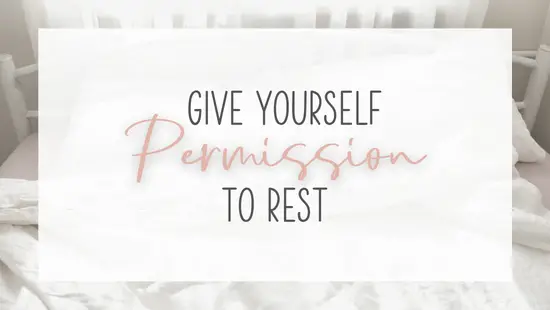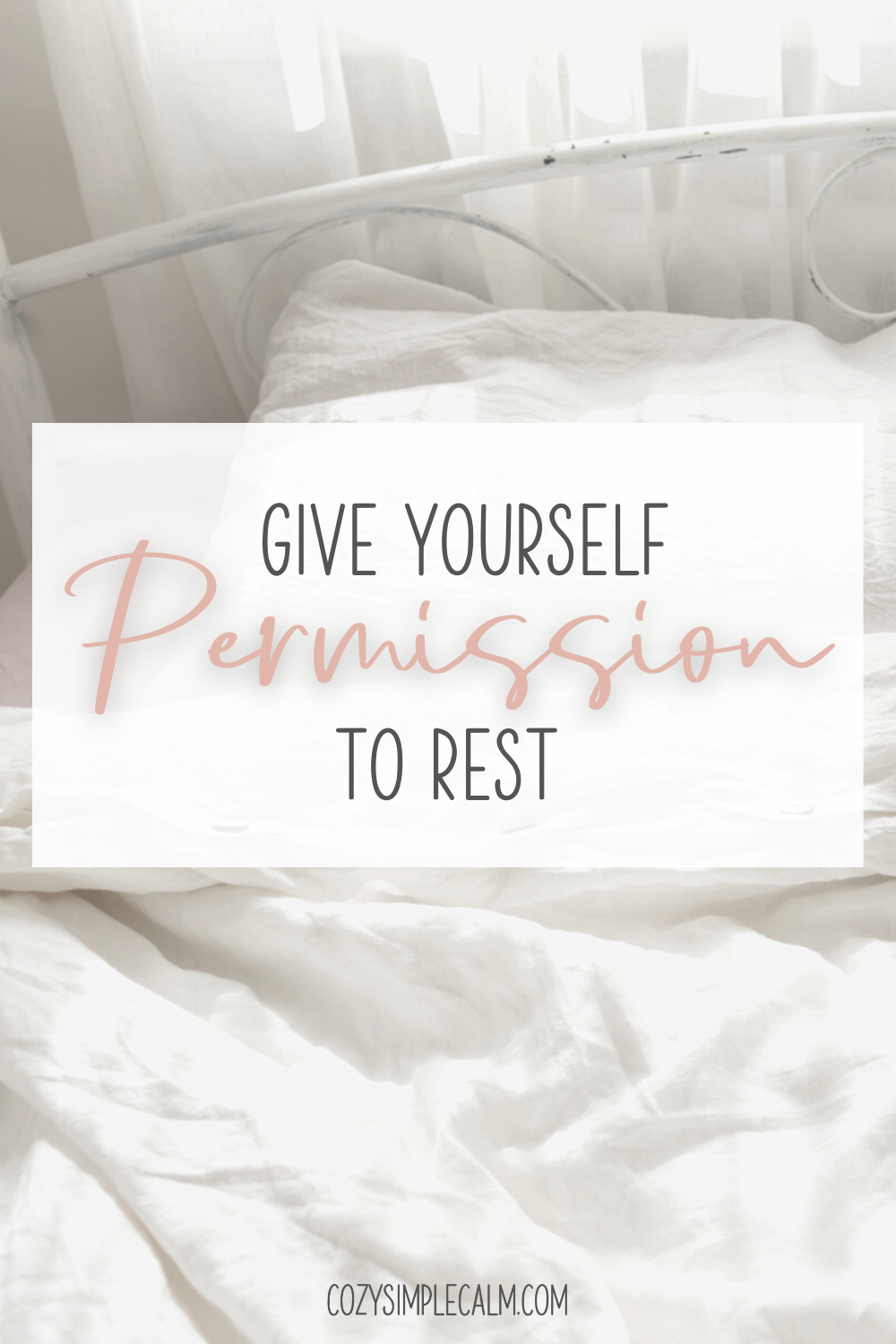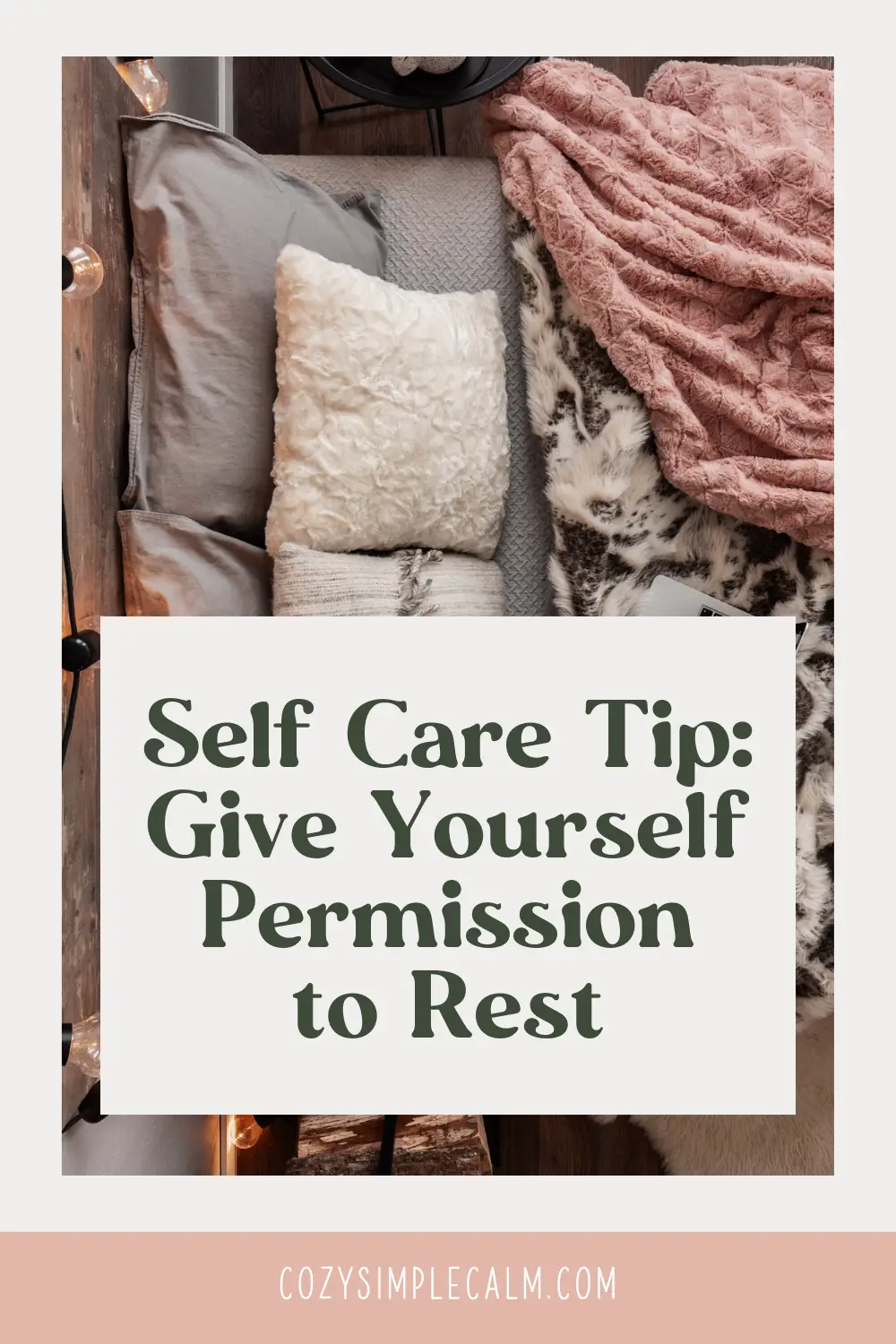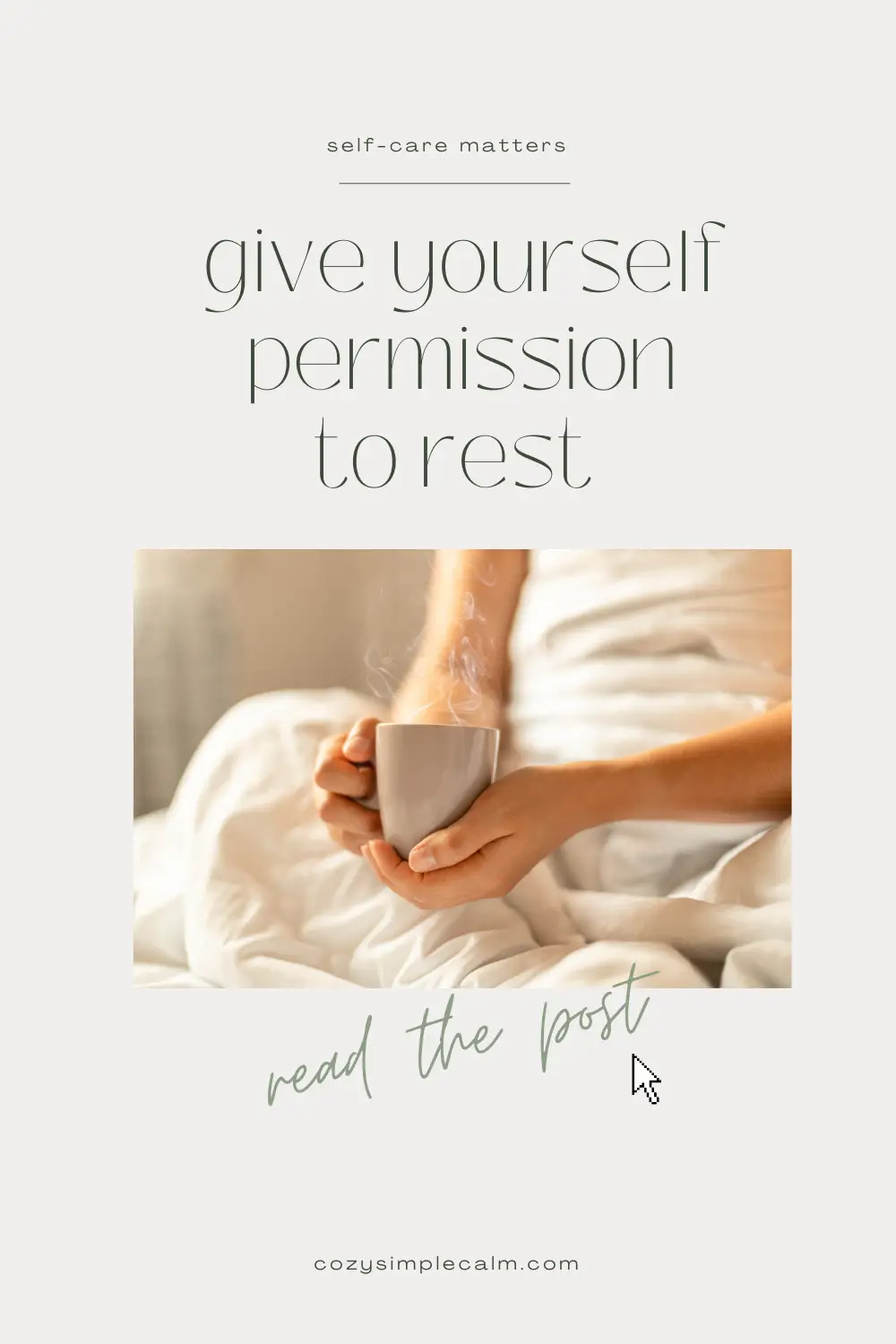
Note - Affiliate links may be used in this post, including Amazon affiliate links. I may receive a small commission at no extra cost to you if you use my affiliate link. But don't worry, all the opinions expressed are my own!
Give yourself permission to rest
How tired are you?
Really, how tired are you? If you’re like most people, you’re probably pretty tired. Physically, mentally, and emotionally…you might be running on empty. So we’re going to explore why giving yourself permission to rest is so important and give you some tips on how to do it.
Why Should You Unplug And Rest?
In today’s society, many of us feel the need to be “on” all the time. We feel like we need to give one hundred percent of ourselves one hundred percent of the time. We’re expected to be available 24/7, and we put a lot of pressure on ourselves to be productive at all hours of the day. This can lead to burnout, anxiety, depression, and a host of other mental health issues.
There’s always something to do, somewhere to be, and someone to see. It can be hard to slow down, but it’s important to take time for yourself and unplug from the world around you. Here’s why:
Your body needs it
Your body needs time to recover from the day-to-day wear and tear. If you’re always going, going, going, your body never has a chance to rest and repair itself. This can lead to physical health problems down the road.
Your mind needs it
Your mind needs a break too. When you’re constantly stimulated, your mind never has a chance to unwind and process. This can lead to mental health issues like anxiety and depression.
Your relationships need it
If you’re always on the go, it can be challenging to give your relationships the attention they need. You might not have time for your friends or family, or you might find yourself too tired to really connect with the people you love. If you’re constantly running around, you might not even realize that your relationships are suffering. But trust me, they are.
Your productivity level needs it
It might seem counterintuitive, but rest time can make you more productive. When you’re always on the go, you’re running on fumes. This can lead to burnout, which makes it difficult to get anything done. For example, you might find yourself making more mistakes, or you might have trouble finishing projects.
You’ll eventually burn out if you don’t create space for rest. And when you burn out, you’re not going to be productive at all.
What rest is (and isn’t)
Rest, or the lack thereof, can be one of life’s most challenging concepts. It seems like such a simple thing – to simply take some time off every now and then to enjoy yourself without any stressors weighing on you. But in reality, that’s not always how things work out for us when we’re constantly surrounded by obligations, at all hours, every day… Most people don’t realize what true relaxation looks and feels like anymore because they’ve become so used to ordering their days around “business” instead of spending quality’ me’ moments that would make them feel good! The problem with this mindset is that it can quickly lead to mental and physical burnout.
That’s why it’s important to understand the difference between true rest and just taking a break for a couple of hours. So, let’s talk about what rest actually is…and what it’s not.
Rest is relaxation
When you’re resting, your body and mind are at ease. You’re not thinking about work, your to-do list, or anything else that might be stressing you out. You’re simply taking some time to recharge.
Rest is a time for renewal
When you’re resting, you’re giving your body and mind a chance to renew themselves. It’s like hitting the reset button on your life. You get to recharge your batteries, so to speak, and come back refreshed and ready to tackle whatever comes your way.
Rest is self-care
When you’re resting, you’re taking care of yourself – and self-care is important! You’re ensuring that your body and mind have the time needed to recover from the day-to-day grind. This is crucial for your overall health and wellbeing.
Rest is sleep!
One of the most important forms of rest is sleep. Good, old-fashioned sleep. When you sleep, your body and mind can recover from the day. This is why it’s so important to get enough sleep every night.
So now that we know what rest is let’s talk about what it’s not…
Rest is not playing catchup
One of the biggest myths about rest is that downtime equals time to catch up on things. But that’s not what rest is about! It’s not about crossing things off your to-do list. Instead, it’s about giving your body and mind the break they need.
When you’re resting, you shouldn’t be doing anything that will add to your stress levels. That means no checking your work email, doing laundry, or cleaning the house. These things can wait.
Rest is not laziness
Another myth about rest is that it’s lazy. But that’s not true! Allowing yourself to rest shows that you respect and value yourself enough to take care of yourself. This is a sign of strength, not weakness.
Rest is not procrastination
It’s also important to understand that rest is not procrastination. When you’re taking time to rest, you’re not putting off what needs to be done. Instead, you’re taking care of yourself so that you can have the mental, physical, and emotional energy to DO what needs to be done.
Rest isn’t a reward.
Finally, it’s essential to understand that rest isn’t a reward. It’s not something you should give yourself only after a long week of work or after completing a big project. It’s not a treat to be enjoyed only after everything else has been done.
Just like you need food and water to survive, you need rest to thrive. It’s not a luxury – it’s a necessity!
What does it mean to give yourself permission to rest?
Now that we know what rest is and what it isn’t, let’s talk about giving yourself permission to rest. This is something that a lot of people struggle with. They don’t feel like they deserve to take a break because they’re so used to being busy all the time (and there’s always more to do.)
But here’s the thing: YOU DO DESERVE TO REST! Everyone does. Giving yourself permission to rest is a sign of self-care and self-love.
When you shift focus to getting the rest you need, it means that you’re making your wellbeing a priority. You’re saying, “I deserve to take care of myself” and “I’m worth taking care of.” This is an incredibly powerful message to send to yourself.
Why do I feel so guilty about resting?
Have you ever felt like you shouldn’t be taking a break because there’s so much to do? If so, you’re not alone.
Many people feel guilty about resting because they believe they should be productive all the time. They think that if they’re not constantly doing something, they’re not being productive enough.
We’ve trained ourselves to think that constant busyness is good – the more we do, the better. But that’s not true.
Here’s the thing: rest is a form of productivity! Resting is taking care of your body and mind. This allows you to come back refreshed and ready to tackle whatever comes your way.
So if you’re feeling guilty about resting, remind yourself that it’s a basic need, just like food and water.
How to allow yourself to rest without guilt
If you’re having trouble giving yourself permission to rest, here are a few tips that might help:
Set boundaries with your time
One of the best ways to make space in your life for adequate rest is to set boundaries with your time. This means learning to say “no” to things that will increase your stress levels. It also means setting aside time each day or week specifically for rest and relaxation.
Make a list of things that help you relax
Another helpful tip is to make a list of things that help you relax. For example, your list might include taking a bath, reading a book, going for a walk, or listening to music.
Let go of perfectionism
If you’re a perfectionist, giving yourself permission to rest can be hard. You might feel like you need to be constantly doing something to succeed. But the truth is, resting is also a form of productivity. So let go of perfectionism and allow yourself to take a break.
Stop beating yourself up over needing rest
If you’re constantly beating yourself up over needing rest, it’s time to give yourself a break. Literally. Take a break from the negative self-talk and give yourself some compassion. Remind yourself that everyone needs rest and that it’s nothing to be ashamed of.
Find a balance between work and rest
Productivity and rest are balancing acts. Therefore, it’s important to find a balance between the two in order to avoid burnout.
This means making sure that you’re not working all the time and that you’re taking breaks when you need them. It’s also essential to make sure that your work doesn’t consume your entire life. Instead, find a healthy balance between work and rest, and give yourself permission to do both.
Have a sleep schedule and stick to it
Rest IS sleep. To make sure that you’re getting enough shut-eye, create a sleep schedule and stick to it. This means going to bed and waking up at the same time each day. It also means avoiding caffeine and screens before bed.
Listen to your body
Last but not least, it’s essential to listen to your body. If you’re feeling tired, give yourself permission to rest. Your body knows what it needs, so trust it.
Final Thoughts
It is so important to give yourself permission to rest. When you do, you tell yourself that you are worth taking care of. You are saying that your well-being is a priority. This is a powerful message that can help you relax and recharge. If you’re feeling guilty about resting, remind yourself that rest is essential for everyone and not guilt-worthy.


Posted in Managing your mindset Uncategorized
Tagged reducing stress self improvement self-care simplifying life slow living


